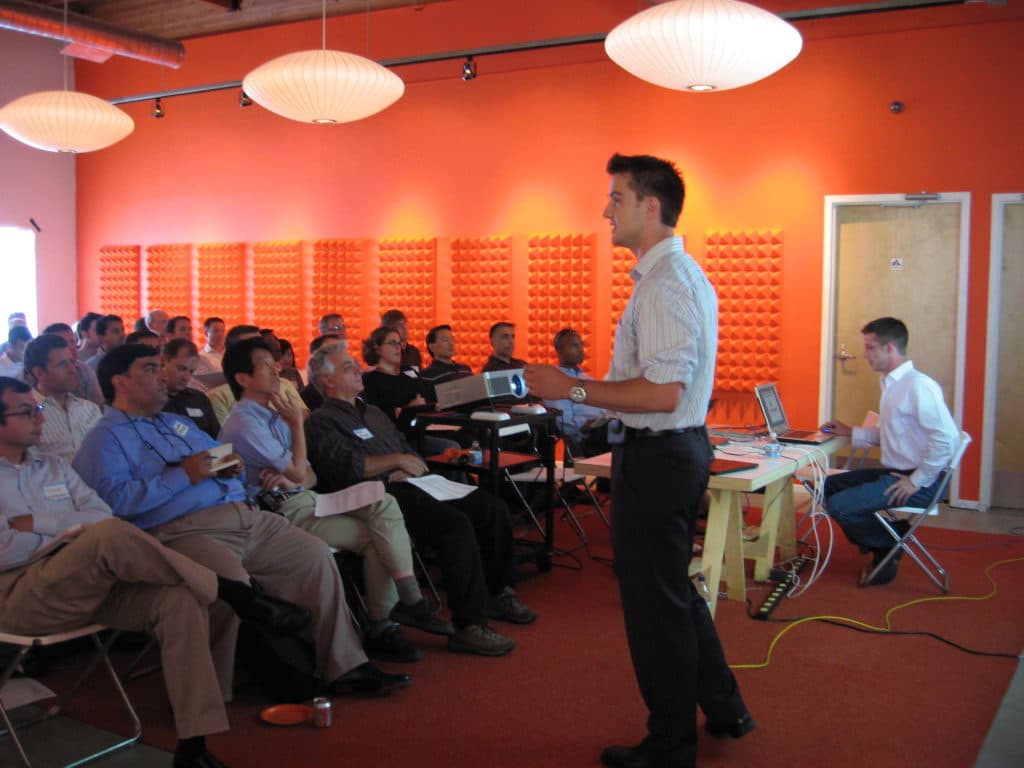When the lack of diversity in Silicon Valley was brought to the nation’s attention, tech lovers and entrepreneurs from all backgrounds quickly began discussing exactly what was keeping Black people barred from the world of tech.
Disparities in quality of education, lack of access to resources for students interested in STEM (science, technology, engineering and mathematics) and racially biased hiring practices quickly emerged as some of the most popular ideas.
Statistically speaking, there is more than enough data to back up these claims and suggest that fixing these issues could be key to diversifying the world of tech.
As the national discourse continues, however, some tech entrepreneurs are highlighting two more major obstacles that are preventing Black people from not only getting into tech but also discouraging them from launching their own startups.
Funding and fear.
This intimidating duo could possibly be among the great adversaries for aspiring Black business owners, especially in the world of tech.
The number of Black employees at tech giants like Google and Facebook was well below the 5 percent mark in recent years. The number of Black tech-savvy entrepreneurs who launched their own startups plummets to a measly 1 percent.
One key reason for this is the lack of funding.
Even outside the world of tech, Black people have historically faced much greater obstacles than their white counterparts when it comes to seeking financial assistance via loans, grants, investments or donations.
Without the necessary funding to get a startup off the ground, it may be nearly impossible for Black-owned startups to stand a chance in the rapidly expanding tech field.
Companies like Y Combinator are hoping to level the playing the field.
Y Combinator is a major incubator for startups and provides seed money to projects that show great potential.
In the past, the company has backed startups like Airbnb and Dropbox.
Now the company is expanding its reach with a particular focus on Black entrepreneurs.
Even as other programs like Y Combinator have started to shift focus in order to find more Black entrepreneurs with promising tech startups, it’s the other enemy that is still causing many to shy away from opportunity — fear.
At least, that’s how Michael Seibel sees it.
Seibel, the first Black partner at Y Combinator, explained that many Black people have a negative perception of launching their own startups.
“We have to convince Black engineers that they have more control of their careers than they realize and they will always be in demand,” Seibel told The Root.
Statistics would also work to support Seibel’s point.
Less than 5 percent of Y Combinator applicants for the winter program were Black.
It suggests that these entrepreneurs simply don’t know about the opportunity or are convincing themselves to not even take a chance in stepping out on their own.
As frightening of a decision as that may be, it’s a decision that has already led Black entrepreneurs like Riana Lynn and Talib Graves-Manns to life-changing opportunities.
Both of the Black startup founders were announced as a part of the first class of entrepreneurs in residence under Google and Code2040.
The coveted title means they will have access to free office space, mentoring teams from both Google and Code 2040 along with a $40,000 stipend.
They are both urging other Black entrepreneurs to overcome the fear of Silicon Valley and take a massive leap forward with their own tech startup.
Lynn explained that a part of the fear could come from a lack of knowledge or not feeling like one has enough experience in the field. It may seem like a legitimate reason to stay out of Silicon Valley’s deep waters, but Lynn says the solution to such a problem is simple.
“If you don’t have the skills to build exactly what you need, then you should at least have team members or freelancers that can help you move things along faster,” she told The Root. “Then you can also understand a little more about how long the project is supposed to take or how much it may cost, and that’s really key to launching a project as a startup founder with little or no capital.”




